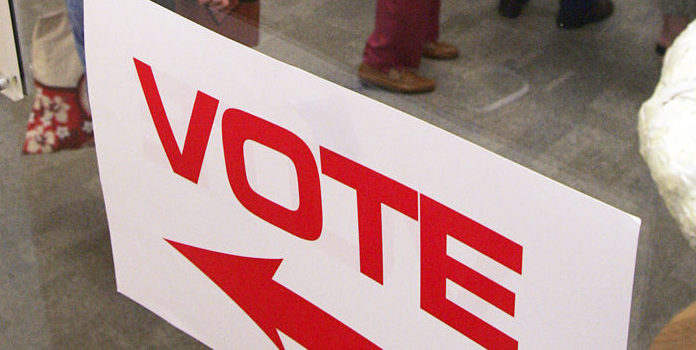() More than 56,000 North Carolina felons regained the right to vote Wednesday through a recent appeals court ruling, though it remains unclear how that might impact the November election.
Anti-election-integrity activists held an event in downtown Raleigh on Wednesday to help felons on parole or probation to register to vote, emboldened by a North Carolina Court of Appeals decision that lifted a restriction following Tuesday’s municipal elections.
A three-judge panel with the appeals court issued a split 2–1 decision in April to lift a ban preventing felons on parole or probation from voting. The ban was imposed by the state Supreme Court last year.
The ruling stemmed from a 2019 lawsuit filed by the Raleigh-based Community Success Initiative to strike down a 1973 law that prohibited felons from voting until their sentences are complete, including post-release probation or parole.
The group alleges that preventing felons from voting upon release from prison violates the state constitution’s Equal Protection Clause and Free Elections Clause, and that the law was written with a racist intent.
Republican lawmakers defending the 1973 law countered that it was sponsored by Democrats with the backing of three black lawmakers and the NAACP.
A three-judge panel with the Wake County Superior Court sided with the plaintiffs in March, agreeing that the law was adopted with racist motivations, and ruled “if a person otherwise eligible to vote is not in jail or prison for a felony conviction, they may lawfully register and vote in North Carolina.”
Republican lawmakers appealed to the court of appeals and sought an en banc hearing by the full 15-member court after the three-judge panel opted to lift the voting restriction.
Plaintiffs successfully petitioned the left-leaning North Carolina Supreme Court to take over the case.
The full North Carolina Court of Appeals includes 10 Republicans and five Democrats. Democrats outnumber Republicans on the state Supreme Court 4-3.
The case is now pending in the Supreme Court, which left the appeals court ruling allowing registrations and voting after Tuesday to remain in place as it proceeds.
Exactly how that will impact voter registrations and the November election remains to be seen.
Over the last four years, Democrats have been losing ground with registered voters, while numbers have been on the rise for Republicans and unaffiliated voters.
In July of 2018, registered Democrats in North Carolina numbered 2,659,396, a figure that has steadily fallen, to 2,535,222 in July 2020, then to 2,491,507 in July 2022.
Republican registrations, meanwhile, went from 2,086,204 in July 2018 to 2,104,343 in July 2020, then to 2,209,952 in July 2022.
Unaffiliated voters numbered 2,186,397 in July 2018, a figure that increased to 2,343,507 in July 2020, then to 2,574,093 in July 2022.
The total number of voters went from nearly 7 million in 2018 to more than 7.3 million this year.
Sixty-six percent of likely general election voters support the 1973 law’s restrictions on felons voting, including 54% that oppose the trial court ruling that allows felons to vote during parole or probation, according to a poll released by the John Locke Foundation this spring.

